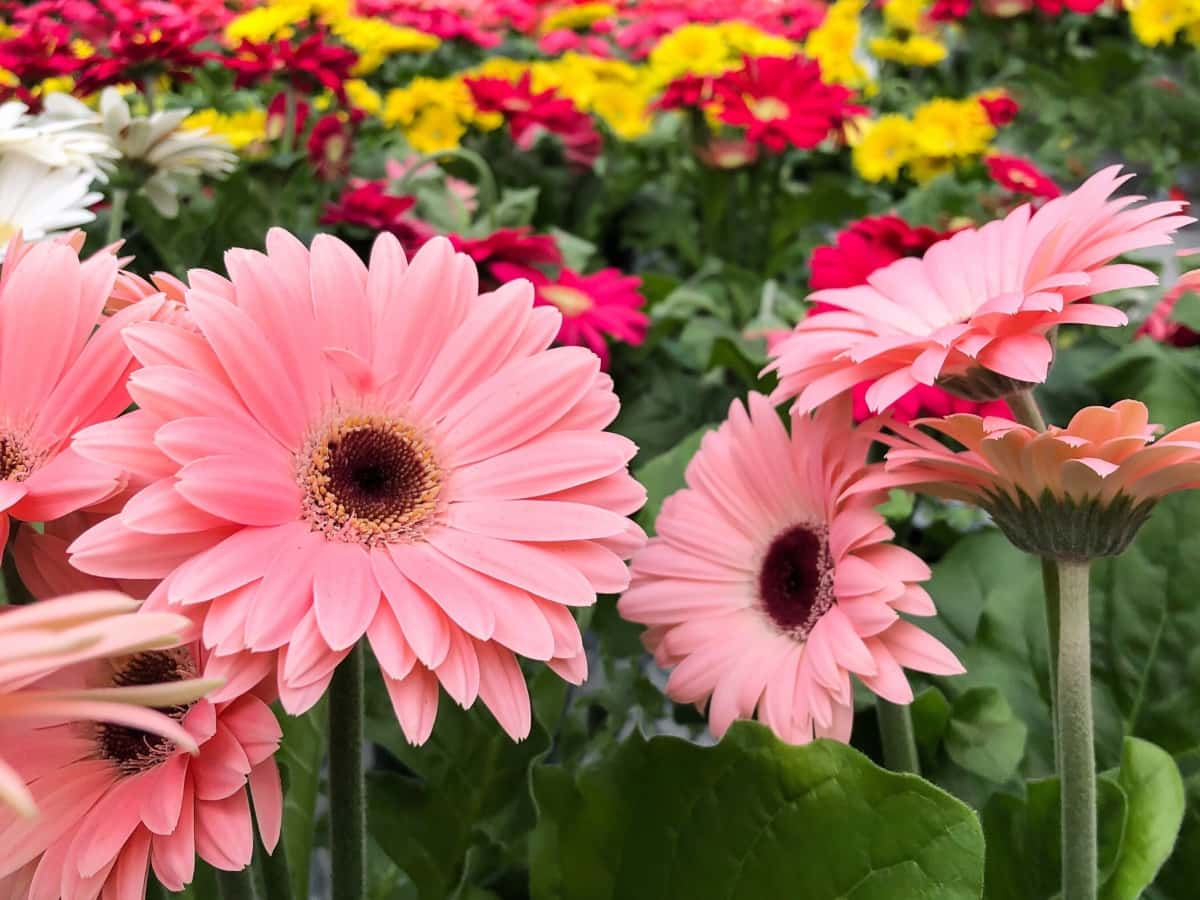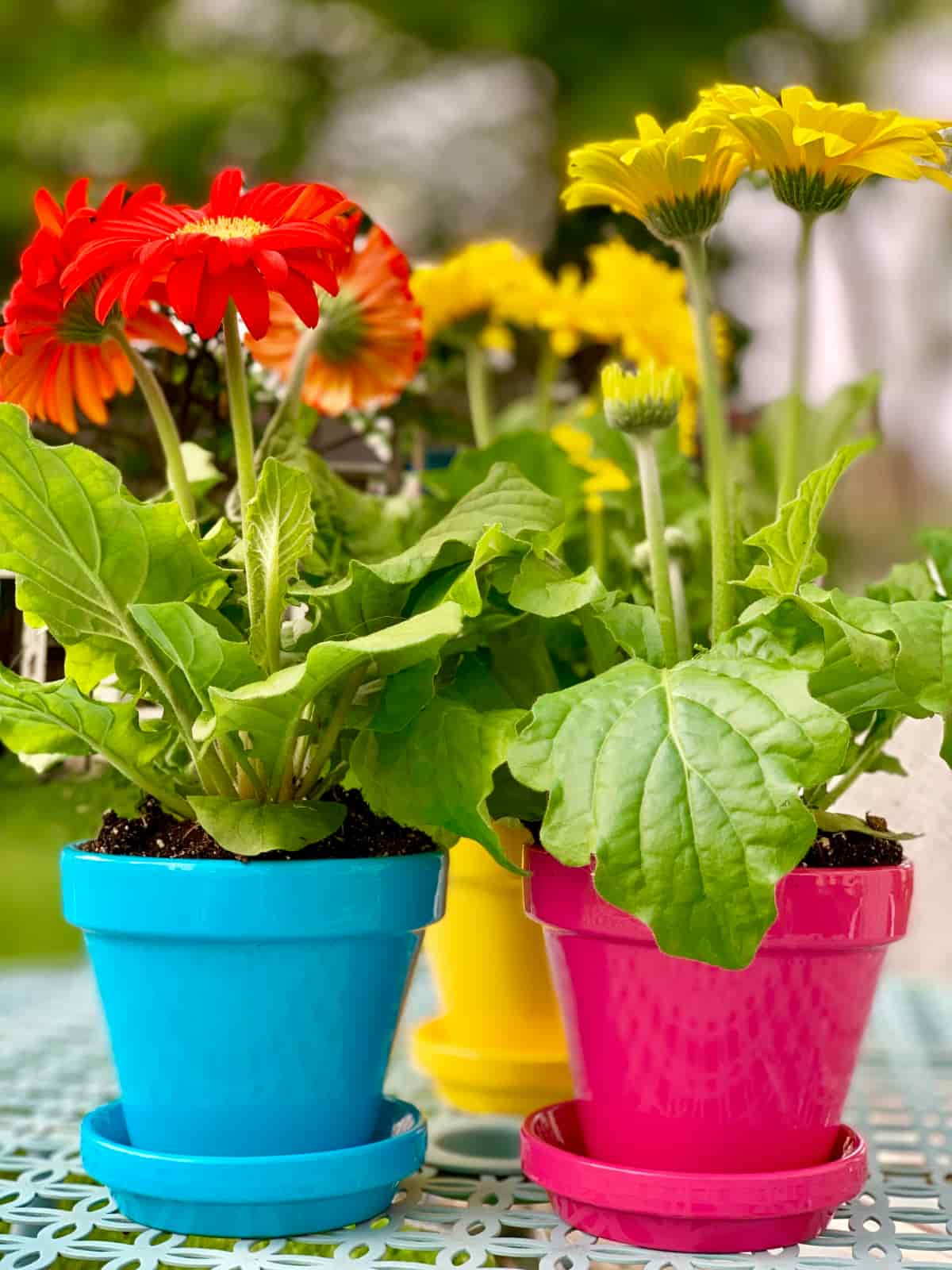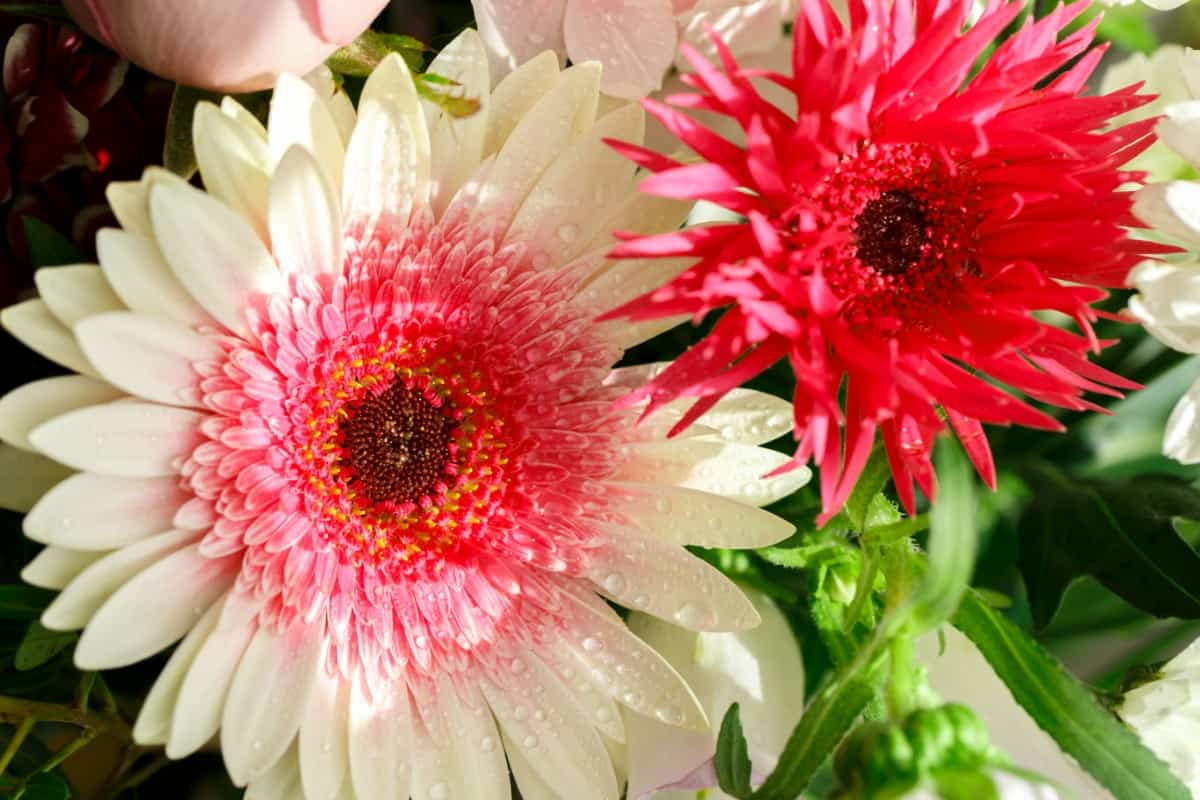The Gerbera Daisy, known for its vibrant, large blooms, is a favorite among gardeners. However, to bring out the best in these plants, understanding the ideal fertilization schedule, and the right type of fertilizer to use, is crucial. This guide explores the best organic and synthetic fertilizers for Gerbera Daisies and provides insights on when and how to apply.

Gerbera Daisies, native to South Africa, are perennials known for their resilience and ability to flower throughout the year. However, they have a high nutrient demand to maintain their beautiful, vibrant blooms. This is where fertilization comes in. Regular fertilizing with the correct NPK ratios (Nitrogen, Phosphorus, Potassium) can significantly affect the health and blooming of your Gerbera Daisies.
Best Fertilizer for Gerbera Daisy
Understanding NPK Ratios
Before diving into the specific fertilizers, it’s important to understand NPK ratios. NPK stands for Nitrogen (N), Phosphorus (P), and Potassium (K). These elements are crucial for plant growth, each serving a distinct purpose. Nitrogen promotes leaf and stem growth, Phosphorus develops roots and flowers, and Potassium improves plant health and disease resistance. A balanced NPK ratio for Gerbera Daisies is generally 15-15-15, indicating equal parts of each nutrient.
Understanding Your Soil’s Nutrient Profile
Before you even begin to consider a fertilization schedule, it’s crucial to understand the nutrient profile of your soil. Soil testing can provide invaluable information about the soil’s existing nutrient levels and pH, which can guide your fertilizer choices. For example, If your soil is high in nitrogen but low in phosphorus, you may need a fertilizer with more phosphorus. Similarly, if your soil is overly acidic or alkaline, certain nutrients may become unavailable to the plants, requiring specific amendments to correct the pH. Soil testing kits are simple and available online or at local garden centers.
Choosing Between Granular and Liquid Fertilizers
The form of your granular or liquid fertilizer can also affect how effectively your Gerbera Daisies absorb the nutrients. Granular fertilizers are typically spread around the base of the plant and then watered in. They are slow-releasing, gradually providing nutrients over some time. This makes them a great choice for sustained, long-term feeding.
These can be more hard to apply evenly, and there’s a risk of the granules getting washed away before they fully dissolve if there’s heavy rain. Liquid fertilizers are blended with water and applied to soil or foliage. They provide nutrients instantly, making them an excellent choice for quick growth spurts or addressing immediate nutrient deficiencies. They must be administered more often than granular fertilizers since their benefits are short-lived.
Choosing the Right Fertilizer
Organic Fertilizers: Compost, bone meal, and manure are some of the organic fertilisers. They are slow-releasing, offering long-term nourishment to your plants while improving the soil structure. A good organic fertilizer for Gerbera Daisies might contain composted poultry manure or worm castings rich in essential nutrients. Organic fertilizers also promote microbial activity in the soil, which helps the plant absorb nutrients more effectively.
Synthetic Fertilizers: Synthetic fertilizers are chemically produced. They provide nutrients immediately, making them beneficial for quick fixes or supplementing nutrient deficiencies. A well-balanced synthetic fertilizer with a 15-15-15 NPK ratio would be a good choice for your Gerbera Daisies. However, unlike their organic counterparts, these fertilizers do not improve soil health over time.
In case you missed it: The Best Fertilizer for Indoor Plants: When and How to Apply

Fertilization Schedule
The best time to start fertilizing Gerbera Daisies is early spring, as new growth begins. The fertilization schedule should continue throughout the growing season until late fall. Fertilize your Gerbera Daisies every two weeks with a balanced 15-15-15 fertilizer. Over-fertilizing can lead to salt buildup in the soil, causing damage to the plant. So, it’s vital to adhere to the manufacturer’s recommended dosage. During winter, reduce fertilization to once a month. The plants go into dormancy during this period and do not require as much feeding.
Application of Fertilizer
- Water the plants: Before applying any fertilizer, ensure the plant and surrounding soil are well-watered. This helps the roots absorb the fertilizer more efficiently and prevents root burn.
- Apply the fertilizer: Apply the fertilizer around the plant’s base, avoiding the stem and leaves, which might burn.
- Work it into the soil: Lightly mix the fertilizer into the top few inches using a hand rake or similar tool. This helps the nutrients penetrate deeper into the soil and reach the roots more effectively.
- Water again: After applying and mixing fertilizer, water the plant again. This helps to dissolve the fertilizer and carry it to the roots.
Considerations for Blooming
Blooming is a significant aspect of Gerbera Daisy’s care. For optimal blooming, it’s crucial to maintain a balance of nutrients. A fertilizer high in phosphorus encourages better bloom production. Therefore, move to a higher middle number fertilizer like 10-20-10 during the flowering season.
Maintaining Soil Health
While fertilization is crucial, it’s also important to remember that soil health plays a significant role in your Gerbera Daisies’ overall growth and blooming. Compost or well-rotted manure may greatly enhance soil structure and nutrients.
Monitoring Plant Health
Regularly monitor your Gerbera Daisies for any signs of nutrient deficiency or over-fertilization. Yellowing leaves might indicate a nitrogen deficiency while lacking blooms could suggest a lack of phosphorus. On the other hand, if the leaves develop brown tips or edges, it may be a sign of over-fertilization.
Adjusting Your Approach
Remember, every garden is unique. Local climate, soil type, and sunlight exposure can influence how your Gerbera Daisies respond to fertilization. Don’t be afraid to adjust your fertilization schedule or the type of fertilizer you use based on your observations and the specific needs of your plants.
In case you missed it: The Best Fertilizer for Hydrangea: When and How to Apply

Conclusion
In summary, maintaining a regular fertilization schedule, choosing the right type of fertilizer, and ensuring it has the correct NPK ratios are crucial for the growth and blooming of your Gerbera Daisies. Both organic and synthetic fertilizers have their benefits, and the best choice depends on your garden’s specific needs and personal preferences. Monitoring your plant health and adjusting your approach as needed will ensure your Gerbera Daisies stay vibrant and healthy, providing you with beautiful blooms throughout the year.
- Feed Your Flock for Less: Top 10 Tips to Save on Chicken Feed
- Ultimate Guide to Ossabaw Island Hog: Breeding, Raising, Diet, and Care
- Hatching Answers: The Top 10 Reasons Your Chickens Aren’t Laying Eggs
- Eggs and Economics: Breaking Down the Cost of Raising Backyard Chickens
- Defend Your Greens: Proven Methods to Keep Iguanas Out of Your Garden
- Ultimate Guide to Cinnamon Queen Chicken: A Comprehensive Guide for Beginners
- Ultimate Guide to California Tan Chicken: Breeding, Raising, Diet, Egg-Production and Care
- Ultimate Guide to Marsh Daisy Chicken: Breeding, Raising, Diet, and Care
- 10 Types of Chicken Farming Businesses You Can Start for Profits